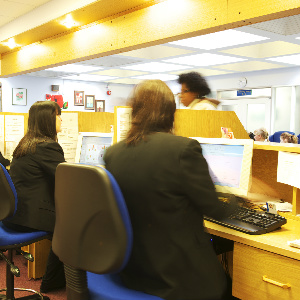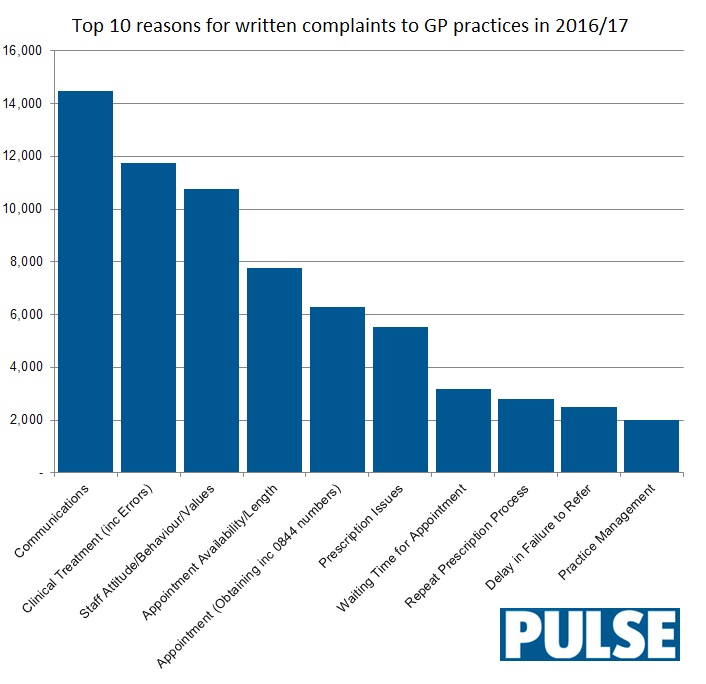GP practices see sharp increase in written complaints from patients

Patients were significantly more likely to complain about their GP services in the past year, according to data released by NHS Digital.
Across primary care, written complaints increased by 9.7% compared to the year before, with the total number rising from 82,559 in 2015/16 to 90,579 in 2016/17.
Of these, 83.2% related to GP surgeries, while 14.6% related to dental practices.
However, around half (49.4%) of resolved complaints made about GP providers were not upheld. Of those that were, 37.1% were fully upheld, while 13.5% were partially upheld.
The largest proportion of complaints were made by patients aged between 26 and 55 years old (46.3%), with the largest number of complaints concerning communication.
This was followed by clinical treatment, staff attitude and behaviour and appointment availablity.
But when aggregated, complaints about appointments and access were most frequent, mentioned 17,241 times.
The report also showed:
- The total number of all reported written complaints against the NHS in 2016/17 was up by 4.9%, to 208,415. This is the equivalent to 4,008 written complaints a week or 571 complaints per day.
- The total number of complaints against hospitals and community health services was 117,836 in 2016/17, representing an increase of 1,656 (1.4%) from last year (116,180).
BMA GP Committee chair Dr Richard Vautrey said it was ‘inevitable that more patients will be frustrated about NHS services which is a direct result of the systemic underfunding of GP services and the unsustainable and unsafe workload pressures practices are under’.
He added: ‘The way to address this is not to criticise hardworking practices but to resource them properly to be able to properly meet the growing needs of our patients.’
RCGP chair Professor Helen Stokes-Lampard said: ‘GP practices actively encourage patients to submit feedback and raise complaints if they feel that the care and services they have received are below their expectations. It is through patient feedback that GP teams can improve the care they deliver to their patients.
‘However, the family doctor service has experienced almost a decade of under-investment and as a result, GPs and our teams are buckling under the pressures of a huge increase in patient numbers but a shortage of doctors to care for them.
‘Inevitably, this will occasionally impact on the service we can deliver and this can be frustrating for patients – and GPs.’
Dr Pallavi Bradshaw, senior medicolegal adviser at GP indemnity provider MPS, said: ‘For GPs in particular, patient expectations are increasing, they are competing with “Dr Google” and the pressure of a 10 minute appointment can mean patients feel rushed and that empathy is lacking.
‘Many of the complaints we see against healthcare professionals are rooted in communication. Good complaints handling procedures are crucial in helping to ensure complaints are resolved effectively, locally and without the need for legal recourse.’

Source: NHS Digital
N.B. When aggregated, issues concerning appointments were most frequently raised, mentioned in over 17,000 complaints.
Pulse July survey
Take our July 2025 survey to potentially win £1.000 worth of tokens

Visit Pulse Reference for details on 140 symptoms, including easily searchable symptoms and categories, offering you a free platform to check symptoms and receive potential diagnoses during consultations.










